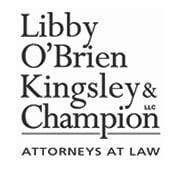Many parents want to leave the family home to their children… “That’s where they grew up” — Or the vacation property that has all of those wonderful family memories of being together and having fun. The fun will end abruptly, though, if the transfer causes a massive tax bill, or intrafamily fighting, or creates a potential liability to the children if they rent out the property because someone told them an otherwise vacant property could be a source of income… maybe.
If the parents “gift” the real estate during their lifetimes, the children will receive the gift with the cost basis being what the parents paid (probably not much in comparison to the value today!), so if the children sell the property the capital gains could be massive. It is a better idea to transfer the property once the last of the parents passes, because the cost basis then will get a step up to the date of death; this means the capital gains will be calculated from the last of the parents to die’s date of death. Waiting to transfer the property in a Will or Trust are just a couple of sound planning ideas.
In our decades of experience administering estates for which our firm did not do the planning, the administration is often plagued by in-fighting among the children: one cannot carry their portion of taxes, or maintenance… the list of issues can go on and on — perhaps one wants out and would like to sell their portion to an archenemy next door neighbor. Would the children rather have the cash from the sale of the house in the first place? A well-drafted Will or Trust that provides a large amount of cash from the sale of the property up front is never refused by the children.
Often, liabilities can be avoided before they occur. If there are any plans to rent out the said real estate, it is the best practice to place the property in a Limited Liability Company (LLC). If someone is renting the premises, or perhaps a guest is injured at the property while it is being rented, only the assets held by the LLC are at risk — many of which can be covered with the proper insurance. This prevents the owners’ assets from being attached by overly-aggressive lawyers.
By now, I hope you can begin to see that there are many pitfalls to be aware of when one is transferring real estate to children. This article only scratches the surface of such issues… don’t sink to the bottom by taking the wrong approach to transferring real estate to your children. The better approach is to call Brian L. Champion, Esq., an experience and qualified Trust & Estate attorney at Libby O’Brien Kingsley & Champion, LLC. (207-985-1815) — with offices in Kennebunk, ME; Portsmouth, NH; and Beverly, MA.

